The Ultimate Guide to Fitness Books
Explore the world of fitness and wellness with our curated selection of fitness books. From workouts to nutrition, these books are your guide to a healthier, happier lifestyle.

Fitness is not just about hitting the gym or counting calories; it's a lifestyle that encompasses a holistic approach to health and well-being.
One of the best ways to enhance your fitness journey is by educating yourself through fitness books.
These books can provide you with the knowledge, motivation, and techniques needed to achieve your health goals.
Key Takeaways:
- Discover the best fitness books for various goals and preferences.
- Learn how fitness books can enhance your workout routine and overall health.
- Understand the importance of incorporating knowledge from fitness books into your fitness regimen.
A Library of Strength: The Best Fitness Books for Muscle Building
When it comes to building muscle, the right information can be as crucial as the workout itself.
Fitness books that focus on strength training offer detailed instructions on form, technique, and programming.
Titles like Starting Strength by Mark Rippetoe have become staples in the bodybuilding community, providing a foundation for beginners and seasoned lifters alike.
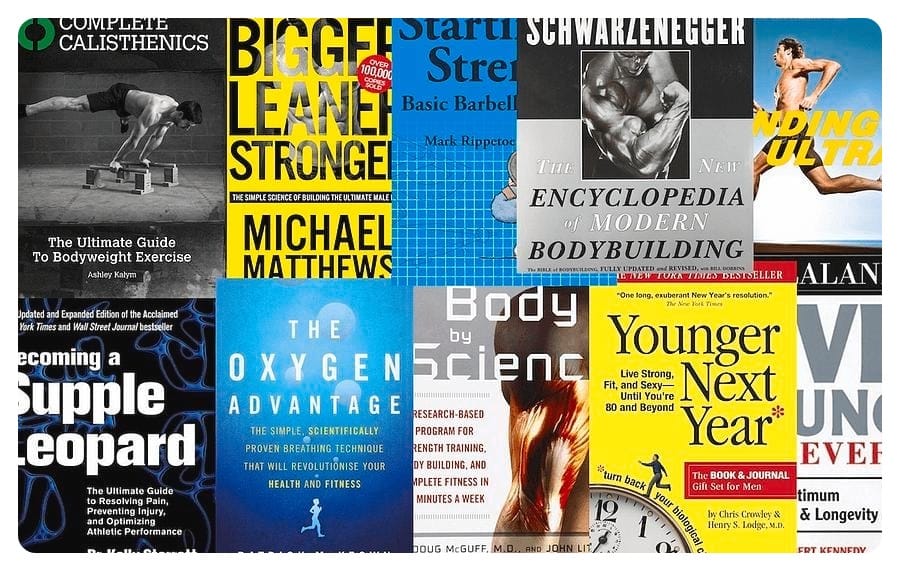
These books often include workout plans, nutritional advice, and the science behind muscle growth, ensuring a comprehensive guide to getting stronger.
Another notable mention is "Bigger Leaner Stronger" by Michael Matthews. This book breaks down the myths in the fitness industry and provides straightforward advice on how to build muscle effectively.
By reading such fitness books, provides expert knowledge that can help you optimize your workouts and see tangible results.
Heart-Pumping Reads: Cardio Fitness Books for Endurance Enthusiasts
Cardiovascular health is a key component of fitness, and there are numerous books dedicated to improving endurance and heart health.
Whether you're a runner, cyclist, or just looking to improve your stamina, books like "Born to Run" by Christopher McDougall can be incredibly inspiring.
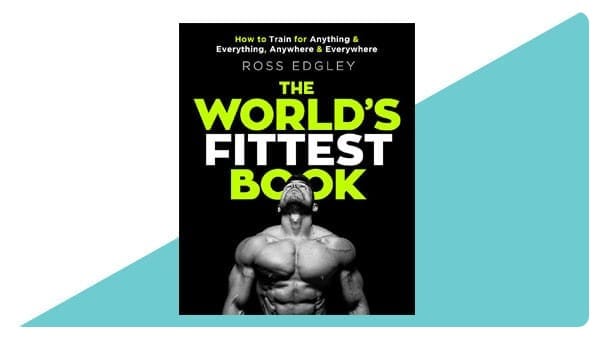
This book not only tells a captivating story but also delves into the mechanics of running and how to do it more effectively.
For those interested in a more scientific approach, "The Lore of Running" by Tim Noakes is a comprehensive resource that covers everything from the physiology of running to injury prevention and nutrition.
By incorporating the insights from these fitness books into your cardio routine, you can enhance your endurance and enjoy the benefits of a healthier cardiovascular system.
Flexibility and Balance
Flexibility and balance are often overlooked aspects of fitness, but they are essential for a well-rounded routine.
Fitness books that focus on yoga and Pilates can guide you through various poses and exercises that improve flexibility, core strength, and mental well-being.
"Light on Yoga" by B.K.S. Iyengar is considered a definitive guide to the practice, offering detailed descriptions of poses and breathing techniques.
Pilates enthusiasts might turn to "Pilates' Return to Life Through Contrology" by Joseph Pilates himself, which explains the principles and exercises of this discipline.
These fitness books not only provide practical instructions but also help readers understand the philosophy behind the practices, leading to a more mindful and effective workout.
Nutrition for Fitness
Nutrition is a critical component of any fitness regimen, and there's a wealth of fitness books dedicated to this topic.
"The Renaissance Diet" by Dr. Mike Israetel provides a scientific approach to eating for performance and body composition.

It covers macronutrient distribution, meal timing, and food selection, catering to those who are serious about their fitness goals.
Another excellent resource is "Eat and Run" by Scott Jurek, which offers insights into how an ultramarathoner fuels his body for extreme endurance.
These fitness books not only provide dietary guidelines but also inspire readers with personal stories and recipes that can be incorporated into a healthy lifestyle.
Books on Mental Fitness
Physical fitness is deeply intertwined with mental health, and there are fitness books that address this connection.
"Spark: The Revolutionary New Science of Exercise and the Brain" by John J. Ratey explores how physical activity benefits the brain, including improving cognitive function and emotional well-being.
This book makes a compelling case for incorporating regular exercise into your life for mental as well as physical health.
"The Champion's Mind: How Great Athletes Think, Train, and Thrive" by Jim Afremow is another excellent read that delves into the psychological aspects of fitness and performance.
By understanding the mental strategies employed by top athletes, readers can apply these techniques to their fitness journeys.
Essential Reads for Safe Workouts
Staying injury-free is crucial for maintaining a consistent fitness routine. Fitness books that focus on injury prevention and recovery can be invaluable resources.
"Becoming a Supple Leopard" by Dr. Kelly Starrett is a popular choice, offering a wealth of information on mobility, proper form, and how to treat and prevent common injuries.
"Anatomy for Runners" by Jay Dicharry is specifically tailored for runners looking to avoid injury and improve performance.
These fitness books provide readers with the knowledge to train smarter and keep their bodies in top condition.
Books to Get Your Heart Racing
High-Intensity Interval Training (HIIT) has gained popularity for its efficiency and effectiveness.
Fitness books like "The One-Minute Workout" by Martin Gibala explain the science behind HIIT and provide practical workouts that can be done in a fraction of the time compared to traditional cardio.
For those looking for a more comprehensive guide, "HIIT It!" by Gina Harney offers a variety of HIIT workouts along with nutritional advice and motivational tips.
These fitness books are perfect for those with busy schedules who still want to achieve their fitness goals.
Science of Exercise
A deeper understanding of exercise physiology can enhance your fitness routine. Books like "Exercise Physiology: Nutrition, Energy, and Human Performance" by William D. McArdle provide an in-depth look at how the body responds to different types of exercise and how to optimize performance.
"The First 20 Minutes" by Gretchen Reynolds is a more accessible read that debunks common exercise myths and presents the latest scientific findings in a way that's easy to understand.
These fitness books are ideal for those who want to get the most out of their workouts by understanding the underlying principles of exercise science.
Books for Self-Guided Fitness
For those who prefer to design their workouts, there are fitness books that act as personal trainers in print.
"The Women's Health Big Book of Exercises" by Adam Campbell offers a comprehensive collection of exercises for every part of the body, complete with illustrations and instructions.
Similarly, "The Men's Health Big Book of Exercises" provides a tailored approach to men's fitness, with workouts that can be customized to individual goals and preferences.
These fitness books are great for anyone looking to take control of their fitness journey with expert guidance.
Our Picks!
Science of Strength Training
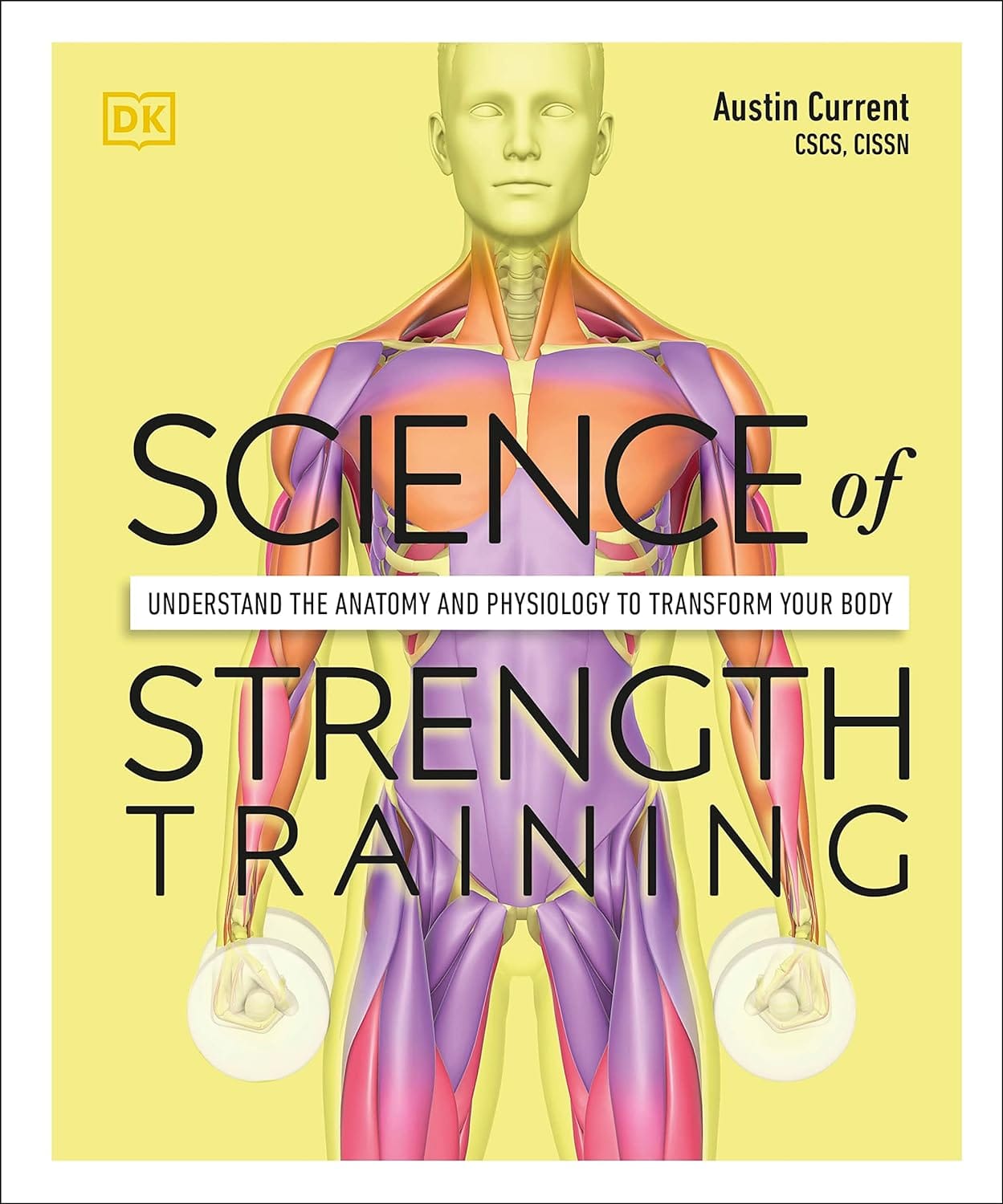
Science of Strength Training
- Evidence-based approach: Grounded in scientific research, providing readers with reliable and proven information.
- Comprehensive coverage: Covers a wide range of topics, including exercise physiology,
- Technical language: This may be challenging for readers without a background in exercise science or physiology.
- Dense content: Some readers may find the information overwhelming due to the depth of scientific detail.
What You Should Know
Dive into the Science of Strength Training with this comprehensive book, crafted to demystify the principles behind building muscle, increasing strength, and optimizing performance.
Authored by leading experts in exercise physiology and biomechanics, this book delves into the latest research and evidence-based practices to help readers understand the science behind effective strength training techniques.
From proper exercise selection and programming to understanding muscle physiology and adaptation, the Science of Strength Training equips readers with the knowledge and tools needed to maximize their training results and reach their fitness goals.
Bigger Leaner Stronger
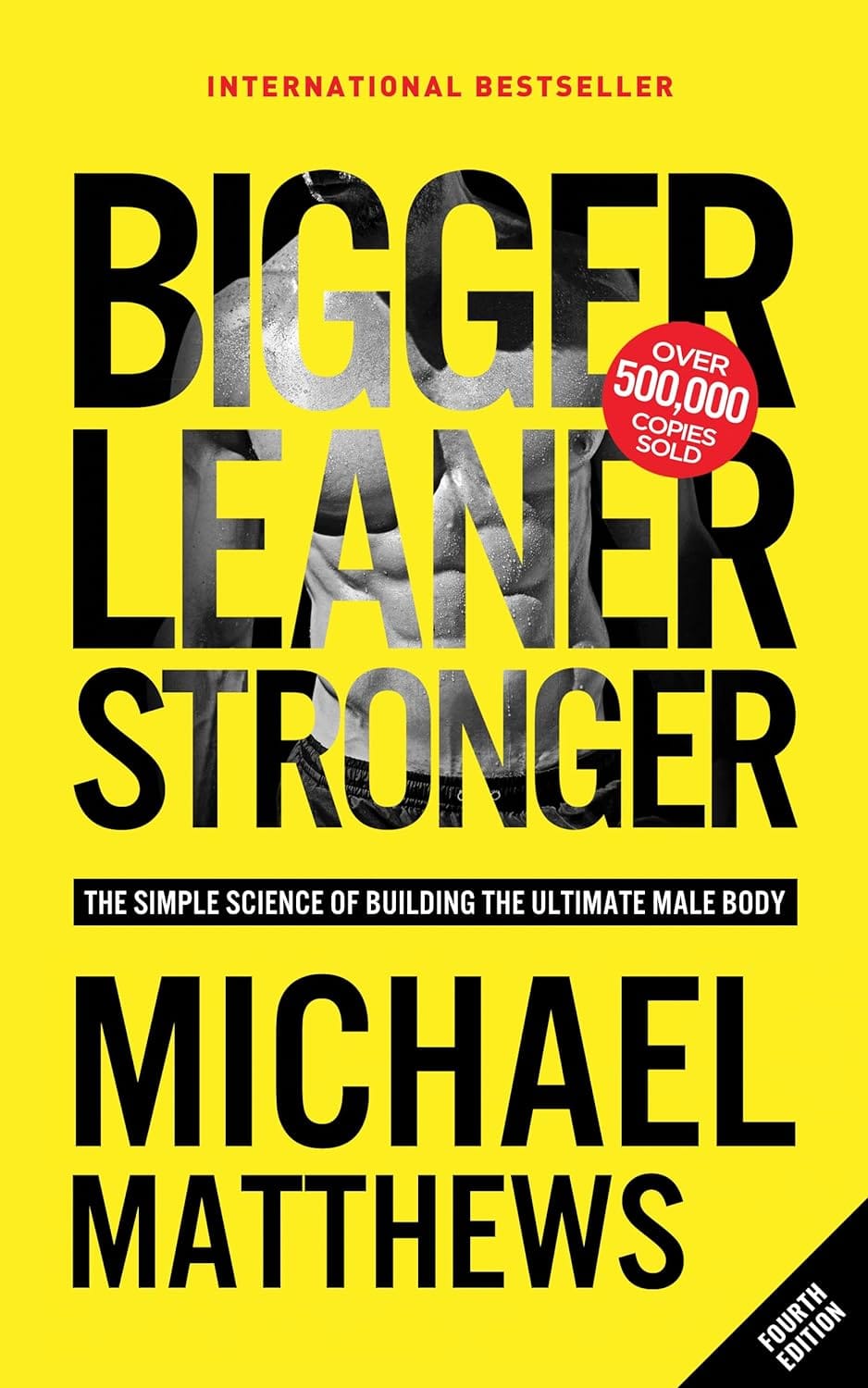
Bigger Leaner Stronger
- Evidence-based strategies: Grounded in scientific research and proven principles of strength training, ensuring effective and reliable information.
- Practical advice: Offers actionable tips and strategies that readers can implement immediately to see tangible results in their training.
- Emphasis on aesthetics: This may not appeal to individuals primarily interested in functional strength or athletic performance.
- Limited focus on individualization: While the book provides general guidelines, it may not address the unique needs and circumstances of every reader.
What You Should Know
Embark on a transformative journey with the Bigger Leaner Stronger book, a comprehensive guide to building muscle, shedding fat, and achieving a leaner, stronger physique.
Authored by fitness expert Michael Matthews, this book offers a straightforward and practical approach to strength training and body recomposition, backed by science and real-world results.
With a focus on compound lifts, progressive overload, and proper nutrition, Bigger Leaner Stronger provides readers with a clear roadmap to success, whether their goal is to pack on muscle mass, get lean, or improve overall fitness levels.
Outlive: The Science and Art of Longevity
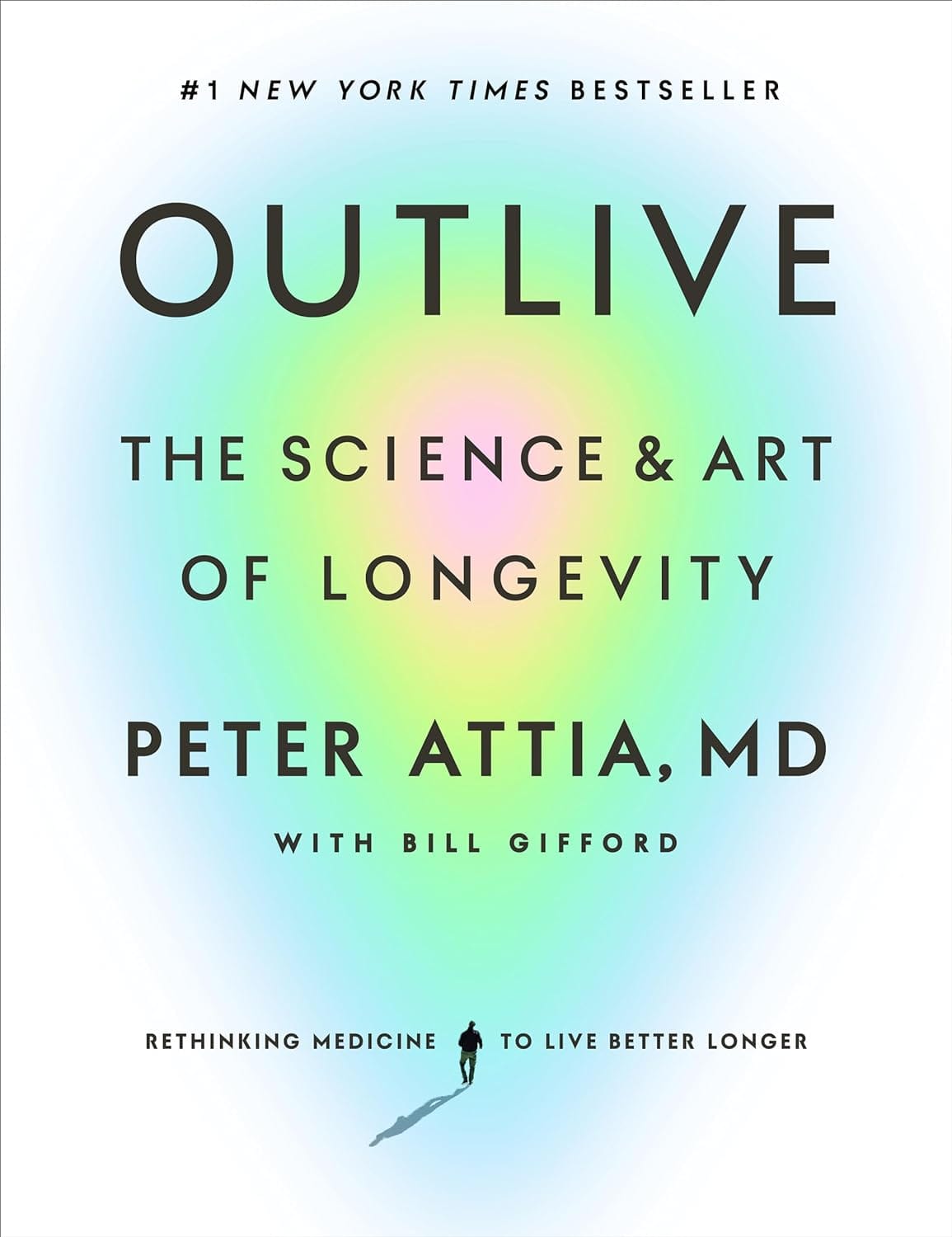
Outlive: The Science and Art of Longevity
- Insights from Blue Zones: Draws on research from regions with the highest concentrations of centenarians to uncover the secrets of longevity.
- Holistic approach: Addresses various factors influencing longevity, including diet, physical activity, social connections, and stress management.
- Lack of individualization: While the book offers general guidelines for longevity, it may not address the unique needs and circumstances of every reader.
- Overemphasis on lifestyle factors: May overlook the role of genetics and other factors beyond lifestyle in determining lifespan.
What You Should Know
Embark on a fascinating journey into the secrets of longevity with "Outlive: The Science and Art of Longevity," a captivating book that blends cutting-edge science with ancient wisdom to unlock the keys to living a longer, healthier life.
Authored by renowned longevity researcher Dan Buettner, this book explores the lifestyles, habits, and environments of the world's longest-lived people, known as Blue Zones, to distil actionable insights for readers.
From nutrition and exercise to social connections and purposeful living, "Outlive" offers practical strategies and evidence-based advice to help readers extend their lifespan and improve their overall well-being.
Thinner Leaner Stronger
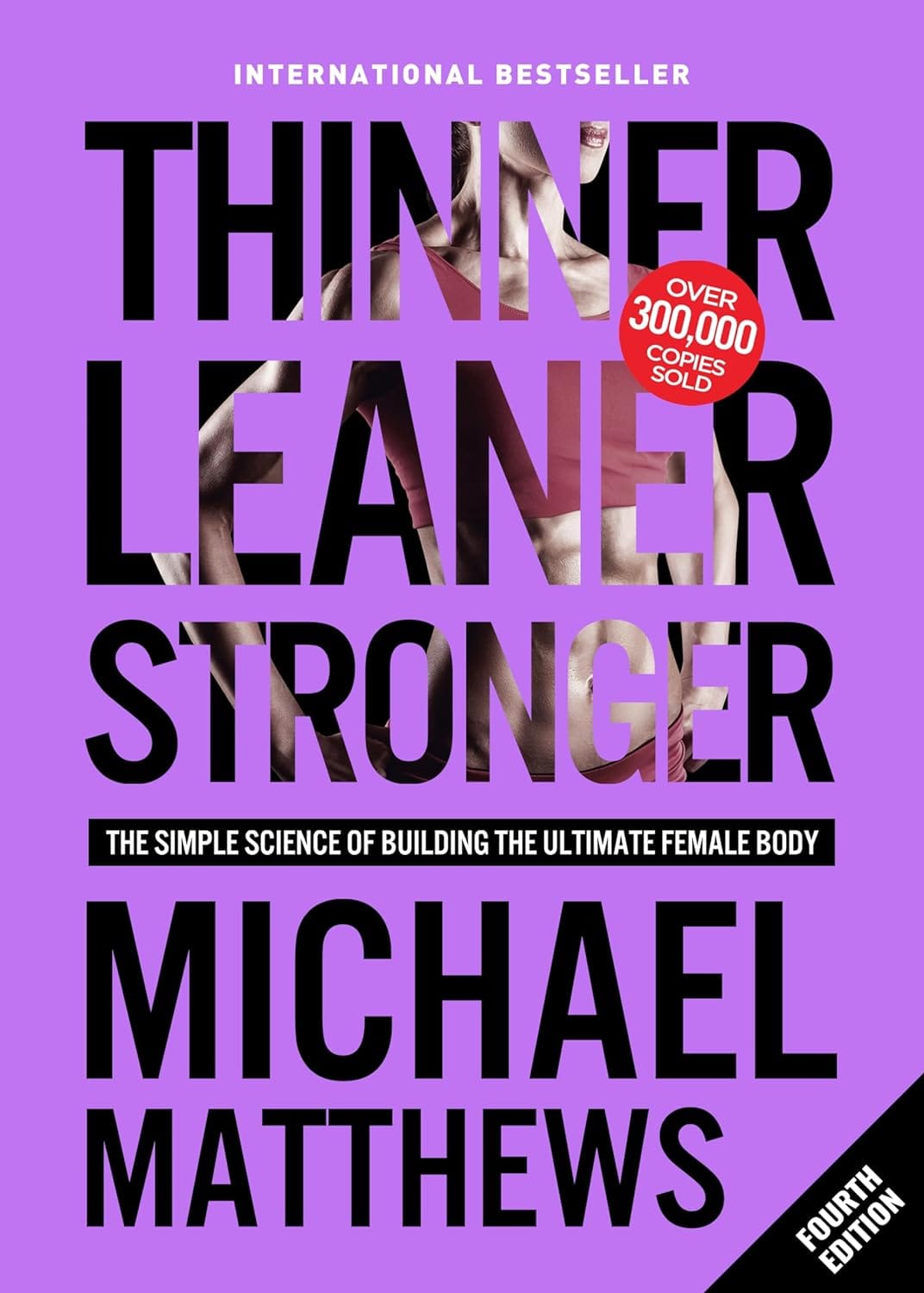
Thinner Leaner Stronger
- Practical advice: Offers actionable tips and strategies that readers can implement immediately to see tangible results in their training.
- Empowering mindset: Encourages readers to adopt a positive mindset and take ownership of their fitness journey, empowering them to make lasting changes.
- Emphasis on aesthetics: This may not appeal to individuals primarily interested in functional strength or athletic performance.
- Simplified nutrition advice: Some readers may find the nutrition recommendations overly simplistic or lacking in detail, requiring additional research or guidance for optimal results.
What You Should Know
Unlock your potential with the Thinner Leaner Stronger book, a comprehensive guide to transforming your body and achieving your fitness goals.
Authored by fitness expert Michael Matthews, this book provides a science-based approach to weight loss, muscle building, and overall fitness.
With a focus on proper nutrition, progressive resistance training, and strategic supplementation, Thinner Leaner Stronger offers readers a practical blueprint for building a leaner, stronger physique and improving their overall health and well-being.
Summary
Fitness books are a treasure trove of knowledge for anyone looking to improve their health and well-being. From muscle building and cardio to nutrition and mental fitness, there's a book out there for every aspect of your fitness journey. By incorporating the wisdom from these books into your routine, you can enhance your workouts, prevent injuries, and achieve your fitness goals more effectively.
FAQ Section
Q 1: What are fitness books, and how can they benefit me?
A: Fitness books are resources that provide information, guidance, and strategies for improving physical fitness, health, and overall well-being. These books cover a wide range of topics, including exercise routines, nutrition advice, weight loss strategies, and mental health tips.
By reading fitness books, individuals can gain valuable knowledge about how to lead a healthier lifestyle, set realistic fitness goals, and develop sustainable habits for long-term success.
Whether you're a beginner looking to kickstart your fitness journey or an experienced athlete seeking to refine your training techniques, fitness books offer valuable insights and inspiration to help you achieve your fitness goals.
Q 2: How do I choose the right fitness book for my needs?
A: When choosing a fitness book, it's essential to consider your specific goals, interests, and fitness level. Start by identifying areas of fitness or health that you'd like to focus on, such as weight loss, muscle building, flexibility, or overall wellness.
Then, look for books that address those specific topics and align with your personal preferences and lifestyle. Pay attention to the author's credentials and expertise, as well as user reviews and recommendations, to ensure the book's credibility and relevance.
Additionally, consider whether you prefer a structured program with detailed workout plans and meal guides or a more holistic approach that incorporates mindfulness, nutrition, and lifestyle factors.
By selecting a fitness book that resonates with your goals and preferences, you can maximize its value and effectiveness in helping you achieve lasting results.
Q 3: Can fitness books replace personal training or professional guidance?
A: While fitness books can provide valuable information and guidance, they may not fully replace the expertise and individualized support provided by personal trainers or health professionals.
Personal trainers offer personalized workout plans, technique correction, motivation, and accountability, which can be invaluable for individuals seeking specific fitness goals or dealing with injury or health concerns.
Similarly, health professionals such as dietitians or physical therapists can offer tailored nutrition advice, rehabilitation exercises, and medical guidance based on your unique needs and circumstances.
However, fitness books can complement professional guidance by offering additional knowledge, inspiration, and resources to support your fitness journey. By combining insights from fitness books with personalized guidance from professionals, you can create a comprehensive approach to health and fitness that addresses your specific goals and needs.
